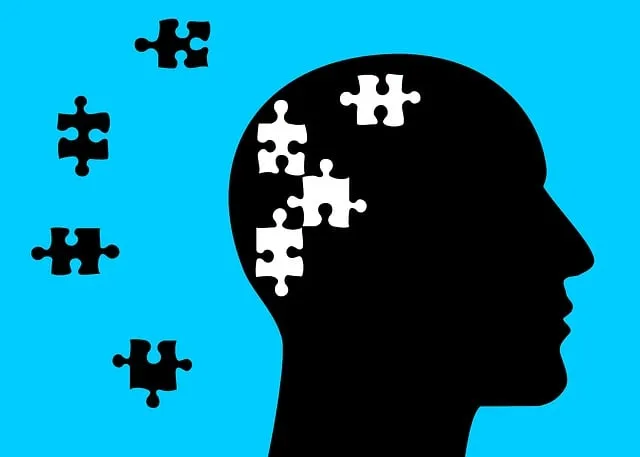Understanding mood regulation and cultural sensitivity are crucial for mental well-being. Self-awareness, mindfulness meditation, and journaling help manage emotions. Kaiser Littleton provides specialized mental health services, including CBT, DBT, IPT, and a Mental Wellness Podcast Series. Building resilience through self-care practices like mindfulness, healthy habits, and stress reduction is key. Learn how to access Kaiser Littleton's mental health resources for better mood regulation and overall mental wellness.
Mood regulation is a vital skill for maintaining mental wellbeing. This article explores strategies to manage and stabilize moods, offering insights into effective practices for personal growth. We delve into the basics of understanding your mood, identifying triggers, and evaluating patterns. Learn about evidence-based techniques for long-term mental health improvement. Additionally, discover how Kaiser Littleton provides access to essential mental health services, guiding individuals toward better emotional regulation and overall wellbeing.
- Understanding Mood Regulation: Unraveling the Basics
- Kaiser Littleton: A Gateway to Mental Health Services
- Evaluating Your Mood: Identifying Triggers and Patterns
- Evidence-Based Strategies for Effective Mood Management
- Building Resilience: Long-Term Wellbeing Through Self-Care
Understanding Mood Regulation: Unraveling the Basics

Understanding Mood Regulation begins with recognizing that our emotional state is a complex interplay of biological, psychological, and social factors. It’s about more than just feeling happy or sad; it involves managing intense emotions effectively to maintain mental well-being. Mood regulation strategies empower individuals to navigate life’s challenges and enhance their overall quality of life. By learning these techniques, you can gain the tools needed to support your mental health journey, especially when seeking professional help through services like Kaiser Littleton.
One crucial aspect is cultivating self-awareness, which includes recognizing triggers and patterns in your emotions. This involves developing a deeper understanding of your inner experiences and surroundings. Additionally, building inner strength through practices such as mindfulness meditation can significantly contribute to Mental Health Awareness. Cultural Sensitivity in Mental Healthcare Practice plays a vital role, ensuring that individuals from diverse backgrounds receive tailored support. Through these means, you can take proactive steps towards managing your mood and accessing the right mental health services, like those offered by Kaiser Littleton, to suit your unique needs.
Kaiser Littleton: A Gateway to Mental Health Services

Kaiser Littleton stands as a prominent gateway to mental health services, offering a comprehensive array of resources for those seeking support. For individuals looking to access mental healthcare, understanding how to navigate this system is essential. The organization provides various programs and initiatives tailored to different needs, ensuring that getting help is not just possible but accessible. Through their network of professionals, Kaiser Littleton facilitates the process of connecting people with suitable treatments and therapists.
This accessibility extends beyond traditional therapy sessions, incorporating innovative burnout prevention strategies for healthcare providers. By addressing emotional well-being promotion techniques and fostering cultural sensitivity in mental healthcare practice, Kaiser Littleton aims to create an inclusive environment. Their holistic approach recognizes that mental health is a diverse landscape, and as such, they offer specialized services while also promoting self-care practices for both patients and caregivers.
Evaluating Your Mood: Identifying Triggers and Patterns

Evaluating your mood is a crucial first step in managing and regulating it effectively. It involves becoming attuned to your emotional state and recognizing patterns that might indicate specific triggers. Start by dedicating time each day to reflect on your feelings, noting any fluctuations throughout the day. Reflecting upon these changes can provide valuable insights into what influences your mood.
Keeping a mental wellness journal is an excellent way to identify these triggers. Documenting your emotions, thoughts, and experiences can help reveal connections between certain events or environments and your subsequent emotional responses. This process allows you to become more aware of personal resilience building mechanisms and any underlying issues that may need professional attention. If you’re experiencing difficulty managing your mood or suspect a trauma-related issue, consider reaching out to Kaiser Littleton for mental health services. They offer specialized guidance and support tailored to individual needs.
Evidence-Based Strategies for Effective Mood Management

Managing your mood effectively is a crucial aspect of maintaining good mental health, and there are several evidence-based strategies that can help individuals achieve emotional balance. One recommended approach is cognitive behavioral therapy (CBT), which has been widely studied and proven to be highly effective in treating various mood disorders. CBT helps individuals identify and challenge negative thought patterns and behaviors contributing to their mood issues. By learning to replace these with healthier coping mechanisms, people can significantly improve their overall mental wellness.
Additionally, accessing professional support from services like Kaiser Littleton’s Mental Health Department is a vital step towards achieving better mood regulation. They offer evidence-based treatments, including therapy options such as dialectical behavior therapy (DBT) and interpersonal therapy (IPT), tailored to individual needs. These therapeutic interventions focus on emotion regulation skills, distress tolerance, and improving interpersonal relationships, all of which play a significant role in managing mood disorders. Furthermore, engaging with resources like the Mental Wellness Podcast Series Production can provide valuable insights and strategies for maintaining mental wellness.
Building Resilience: Long-Term Wellbeing Through Self-Care

Building resilience is a key component of long-term mental wellbeing, and self-care plays a pivotal role in this process. At Kaiser Littleton, how to get mental health services is accessible, offering various resources to support individuals in fostering their mental fortitude. By integrating regular self-care practices into daily routines, one can enhance their ability to navigate life’s challenges and maintain a positive outlook. This involves prioritizing activities that nurture both physical and emotional health, such as engaging in mindfulness exercises, adopting healthy eating habits, and securing adequate sleep.
Furthermore, improving self-esteem, refining communication strategies, and employing stress reduction methods are interconnected aspects of building resilience. Engaging in activities that cultivate self-worth, like setting achievable goals or practicing positive self-talk, can significantly impact overall mental health. Effective communication strategies allow individuals to express their feelings, seek support, and build strong connections with others, contributing to a sense of belonging and security. Stress reduction methods, such as deep breathing exercises or engaging in hobbies, help lower anxiety levels and create a calmer mindset, enabling individuals to approach challenges more effectively.
Mood regulation is a powerful tool for enhancing overall wellbeing. By understanding the basics, identifying personal triggers, and employing evidence-based strategies, individuals can effectively manage their moods and foster long-term resilience. For those seeking professional guidance, Kaiser Littleton offers a gateway to accessible mental health services, providing a crucial step towards achieving emotional balance. Through self-care practices and navigating life’s challenges, one can cultivate a more stable and fulfilling life.






